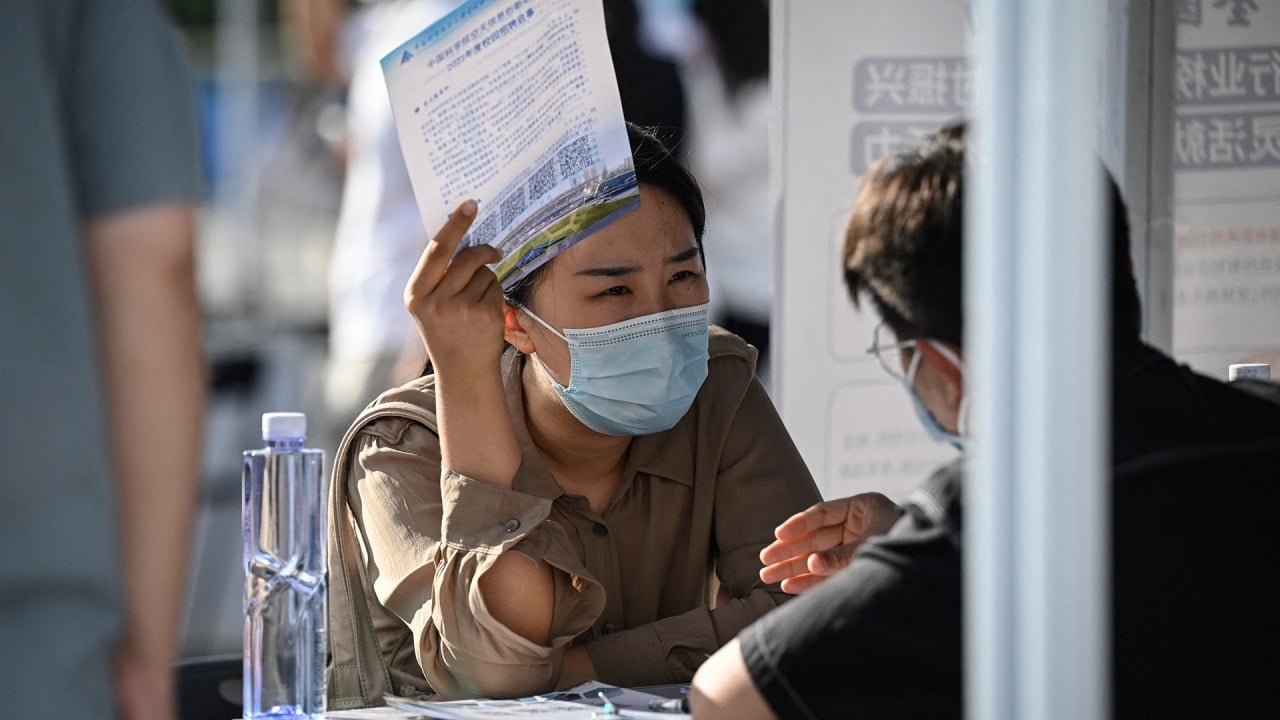In another clear disadvantage, most firms she applied to no longer accept online interviews, as with the end of pandemic restrictions, companies now prefer to evaluate candidates in-person.
China’s civil service in high demand as record 2.83 million apply for exam
China’s civil service in high demand as record 2.83 million apply for exam
“College degrees have depreciated so much in China,” Li said. “And companies set high thresholds for fresh graduates to do rather simple work.”
“The employment difficulty for domestic graduates in China will inevitably spread to overseas students,” said Peng Peng, executive chairman of the Guangdong Society of Reform think tank.
Li did not consider returning to China to work until the final year of her three-year programme, when a family illness prompted her to look for opportunities closer to home.
However, even students who enrol in one-year programmes overseas are quick to conclude prospects are better in China, choosing to make the journey back when their studies are over.
Eva Tsai, who is studying marketing communication in the US, is determined to take advantage of her family’s connections in China for a more promising career rather than competing with locals as lay-offs rock several industries in her temporary home.
The one-year postgraduate programme Tsai enrolled in does not offer optional practical training, a work permit that allows international students on an F-1 visa to find temporary employment within the US.
I am positive about finding a job in the mainland because my family can provide resources and connections
This makes it almost impossible for Tsai to find a job after graduation, she said.
Despite the fierce competition, Tsai, who holds a Taiwanese passport, prefers to work in mainland China as opportunities in global companies are more abundant compared to the island. Inflation, flatlined salaries and limited openings are other concerns.
“I am positive about finding a job in the mainland because my family can provide resources and connections,” Tsai said.
Technology giants and multinational companies have been top choices for overseas graduates for years, but uncertainty in the private sector as the economy limps towards recovery has changed graduates’ attitudes.
As Chinese families cut costs, studying abroad goes on the chopping block
As Chinese families cut costs, studying abroad goes on the chopping block
A survey conducted by Zhaopin, a major Chinese recruitment platform, showed that 38.8 per cent of students holding overseas degrees hoped to work in state-owned enterprises in 2022, up 9 per cent from 2021.
The proportion who hope for direct government employment as civil servants was around 21 per cent.
Overseas graduates’ enthusiasm for the civil service reflects an overriding preference for a stable career path.
According to the survey, 74.4 per cent of graduates believe there is a “civil service exam frenzy” among outbound students in 2022, up from 59 per cent in 2021.
Local governments have taken notice. In September, the Shanghai government’s “directed selection” civil servant trainee programme was opened to graduates from 73 designated overseas universities.
The Beijing government shortly followed suit, expanding eligibility for the programme to alumni of the top 100 institutions in ShanghaiRanking’s 2023 Academic Ranking of World Universities.
If I can’t find a better one next spring, I have no choice but to settle for what I have now
Li, the business student in Europe, said most of her friends who return to China end up in state-owned enterprises and government institutions because they have strong financial support and local connections through their families.
However, Li said she would not start her career in China if her parents were not sick.
She will continue to apply for jobs next season, she said, since the one offer she received only met her “minimum expectation”.
“If I can’t find a better one next spring, I have no choice but to settle for what I have now,” she added.


